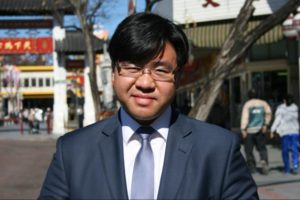Lack of diversity and the top end of town – report
 Australia’s top end of town has a “dismal” lack of cultural diversity with just eight CEOs among the ASX top 200 companies coming from non-European or indigenous background, according to research by the Human Rights Commission.
Australia’s top end of town has a “dismal” lack of cultural diversity with just eight CEOs among the ASX top 200 companies coming from non-European or indigenous background, according to research by the Human Rights Commission.
The research also found 99 per cent of state and federal public service heads and all but one of 30 federal ministers had Anglo-Celtic or European backgrounds.
The commission’s ’Leading For Change’ report found 97 per cent of top CEOs were of Anglo-Celtic or European background and 95 per cent of other senior management also fit this profile, sparking a discussion about leadership targets.
In absolute numbers, this meant only 11 of the 372 CEOs and senior executives the report looked at were of non-European or Indigenous background.
“That’s a cricket team’s worth of diversity in Australian leadership,” Race Discrimination Commissioner Tim Soutphommasane said.
And, in federal politics, the same homogeneity applies, the report found
“Of the 30 members of the Federal Ministry, there is no one who has a non-European background, and one who has an Indigenous background,” Dr Soutphommasane said.
“It is similarly bleak within the public service, where 99 per cent of the heads of federal and state government departments have an Anglo-Celtic or European background (that’s one person of 103 heads of department).
“Universities don’t fare much better: just one of the 39 vice-chancellors of Australian universities has a non-European background.
“All up there are 11 of the 372 CEOs and equivalents who have a non-European or Indigenous background. A mere cricket team’s worth of diversity.
“These are dismal statistics for a society that prides itself on its multiculturalism. They challenge our egalitarian self-image. And they challenge our future prosperity as a nation. If we aren’t making the most of our multicultural talents, we may be squandering opportunities.”
The Commissioner researched and wrote ‘Leading for Change: A Blueprint for Cultural Diversity and Inclusive Leadership Revisited’ in partnership with the University of Sydney Business School, the Committee for Sydney, and Asia Society Australia.
He said the latest study builds on the Leading for Change (2016) report, which provided a snapshot of cultural diversity in the senior leadership of Australian organisations and institutions.
“Our 2018 report examines the cultural backgrounds of chief executive officers of ASX 200 companies, federal ministers, heads of federal and state government departments, and vice-chancellors of universities.
“It also examines the cultural backgrounds of senior management at the level directly below chief executives and equivalent – namely, group executives of ASX 200 companies, elected members of the Commonwealth Parliament, deputy heads of government departments and deputy vice chancellors of universities.
“Of those who occupy 2490 of the most senior posts in Australia, 75.9 per cent have an Anglo-Celtic background, 19.0 per cent have a European background, 4.7 per cent have a non-European background and 0.4 per cent have an Indigenous background.
“Described another way, about 95 per cent of senior leaders in Australia have an Anglo-Celtic or European background. Although those who have non-European and Indigenous backgrounds make up an estimated 24 per cent of the Australian population, such backgrounds account for only 5 per cent of senior leaders.”
Dr Soutphommasane said it would be complacent to believe it is only a matter of time before cultural diversity is better represented.
He said the Leading for Change reports demonstrate there is limited cultural diversity in the leadership pipeline.
“In a society where nearly one-quarter is estimated to have a non-European or Indigenous background, the findings of our latest study challenge us to do better with our multiculturalism.
“Getting serious about the issue demands that leaders and organisations take committed action in three areas: leadership, systems and culture.
“The experience of gender equality has demonstrated the power of having data and reporting on gender. If we are committed to deepening our success as a multicultural society, there must be consideration of collection and reporting of comprehensive data on cultural diversity within Australian organisations and institutions,” Dr Soutphommasane said.
Laurie Nowell
AMES Australia Senior Journalist












